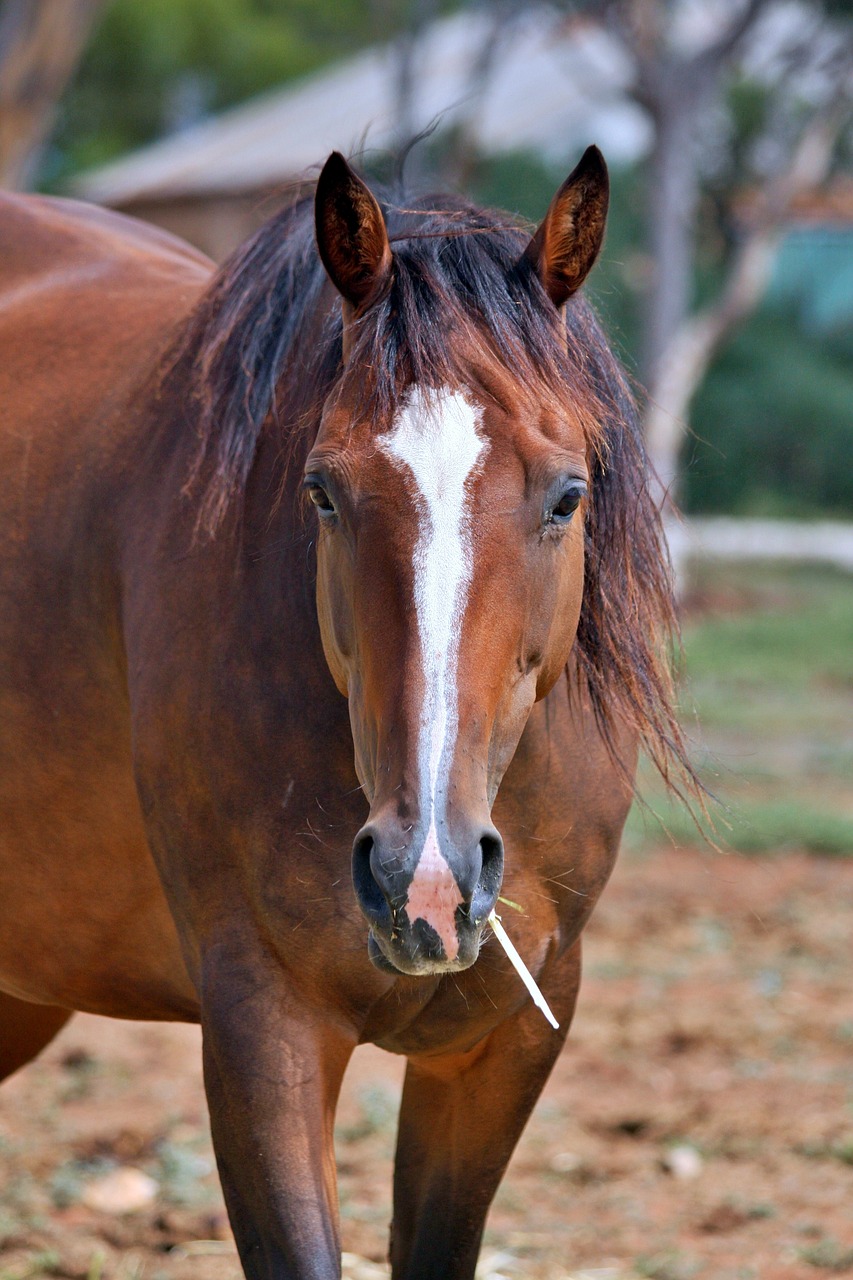推荐答案
跟全世界人民差不多,也就是猫咪和狗狗了
其他回答
求英国人爱养的宠物狗狗哦
吉娃娃(我觉得它很难看)
西施(碧昂斯有哦)
拉布拉多(大大的)
藏獒(这个比较少人养)
贵宾(电影贵妇都嘛抱一个)
牧羊(又拉风又可爱又温顺)
就这些了~~~
英国长毛猫怎么养 英国长毛猫禁忌食物介绍
宠物猫品种
宠物猫品种繁多,常见的品种有苏格兰折耳猫、英国短毛猫、波斯猫、美国短毛猫、俄罗斯蓝猫、缅因猫、挪威森林猫、德文卷毛猫、阿比西尼亚猫和孟买猫。
每个品种都有其独特的特点和优势,可以根据个人喜好和饲养需求进行选择。在选择宠物猫时,建议选择适合自己生活方式和个性的品种,并从可靠的繁殖者或宠物店购买。
1.苏格兰折耳猫
具有可爱、温顺、聪明等特点,备受人们喜爱。
2.英国短毛猫
体型健壮,性格温和,容易与人相处。
3.波斯猫
长毛猫的一种,体型优雅,头部形状独特,是很多人喜欢饲养的品种之一。
4.美国短毛猫
体型健壮,性格活泼,容易与人相处。
5.俄罗斯蓝猫
短毛猫的一种,性格温和,容易与人相处。
6.缅因猫
体型庞大,毛发长而浓密,性格独立、活泼、友善。
7.挪威森林猫
体型较大,毛发浓密,性格独立、活泼、友善。
8.德文卷毛猫
短毛猫的一种,体型健壮,性格活泼、聪明。
9.阿比西尼亚猫
短毛猫的一种,体型纤细,性格活泼、聪明、独立。
10.孟买猫
短毛猫的一种,性格温和、友善、聪明。
英国入境对携带宠物具体有哪些规定
英国长毛猫怎么养?虽然猫咪看着很好养的样子,但是对于猫咪来说,有些食物还是禁忌的哦,切记不能给自家猫咪吃,具体都有哪些呢?
英国长毛猫怎么养?虽然猫咪看着很好养的样子,但是对于猫咪来说,有些食物还是禁忌的哦,切记不能给自家猫咪吃,具体都有哪些呢?
猫的食物禁忌:
动物肝脏:一些猫很爱吃动物肝脏并且拒绝吃其他食物。动物肝脏中含有大量的维生素A,但过多地摄入维生素A会导致肌肉僵硬、颈痛、骨骼和关节变形以及肝脏疾病。
高脂食品:如果猫的饮食中含有大量高脂肪的鱼类或不新鲜的肥肉,会导致维生素E的摄入不足,进而引起猫的身体脂肪发炎,并极度疼痛。
生鱼:某些生鱼中含有可破坏维生素B1的酶,而维生素B1的缺乏可导致猫的神经疾病,严重时会致命,这种酶可以通过加热得以破坏,所以一定要将鱼做熟以后再喂猫。
肉:虽然猫的饮食应以肉类为主,但如果只给猫喂食肉类食品,会导致矿物质和维生素摄入不均,进而引发严重的骨骼代谢紊乱。
狗粮:狗粮与猫粮中的营养物质不尽相同,狗粮中的营养物质不能够满足猫的需求。虽然猫狗都是肉食动物,但狗对营养的需求不如猫大。
鱼肝油:在为猫补充额外维生素和矿物质时应特别谨慎,过量食用鱼肝油会导致维生素A和维生素D的超量摄入,进而引发骨骼疾病。
如果您没有给猫配餐的经验,建议您最好使用由宠物护理专家专门研制的猫粮,猫粮不仅可以为猫提供均衡、完备的营养,而且还不需要再为它额外补充营养。使用这种产品还可以避免饲喂错误。
増加一危险食物: "洋葱" DIY猫粮的猫友请注意. 切忌在猫饭中加洋葱. 因为洋葱让猫猫吃下,会令猫猫中毒----产生溶血而亡.
1. Overview
You can enter or return to the UK with your pet cat, dog or ferret if it:
has been microchipped
has a pet passport or third-country official veterinary certificate
has been vaccinated against rabies - it will also need a blood test if you?re travelling from an ?unlisted country?
Dogs must also usually have a tapeworm treatment.
Your pet may be put into quarantine for up to 4 months if you don?t follow these rules - or refused entry if you travelled by sea. You?re responsible for any fees or charges.
You must follow extra rules if the animals will be:
sold in the UK from outside the EU or inside the EU
re-homed in the UK from inside or outside the EU
There are different rules for entering other countries from the UK with your pet. Check the rules for the country you?re travelling to.
Before you travel
Check if the company you?re travelling with:
will accept your pet for travel - and how many they?ll accept if you have more than one
needs any proof that your pet is fit and healthy to travel, for example aletter from a vet or certain information in your pet passport
Travelling with your pet
Your pet must arrive in the UK no more than 5 days before or after you, or you?ll have to follow different rules.
You must use an approved transport company and route unless you?re travelling between the UK and Ireland.
You need to fill in a declaration confirming that you aren?t going to sell or transfer the ownership of your pet.
Authorising someone else to travel with your pet
Your pet can travel with someone else if you?ve authorised it in writing.
Bringing other animals
The rules are different if you?re bringing other animals into the UK.
?
2. Where you're travelling from
The rules for bringing your pet cat, dog or ferret into the UK depend on whether you?re coming from:
an EU country, or another country the UK accepts pet passports from
a listed country
an unlisted country - a country the UK doesn?t accept a pet passport from, and one that isn?t a listed country
Countries the UK accepts pet passports from
As well as all countries in the EU, the UK also accepts pet passports from:
Andorra
Azores and Madeira
Canary Islands
French Guiana
Gibraltar
Greenland and the Faroe Islands
Guadeloupe
Iceland
Liechtenstein
Martinique
Monaco
Norway
Reunion
San Marino
Switzerland
Vatican City
Listed countries
The listed countries are:
Antigua and Barbuda, Argentina, Aruba, Ascension Island, Australia, Bahrain, Barbados, Belarus, Bermuda, BES Islands (Bonair, Saint Eustatius and Saba), Bosnia-Herzegovina, British Virgin Islands, Canada, Cayman Islands, Chile, Cura?ao, Falkland Islands, Fiji, French Polynesia, Hong Kong, Japan, Malaysia, Mauritius, Mexico, Montserrat, New Caledonia, New Zealand, Russian Federation, Saint Maarten, Singapore, St Helena, St Kitts and Nevis, St Lucia, St Pierre and Miquelon, St Vincent and The Grenadines, Taiwan, The former Yugoslav Republic of Macedonia, Trinidad and Tobago, United Arab Emirates, USA (includes American Samoa, Guam, Northern Mariana Islands, Puerto Rico and the US virgin Islands), Vanuatu, Wallis and Futuna.
If you?re travelling from Jamaica, you must have your pet microchipped and vaccinated in a different non-EU listed country or put your pet into quarantine.
There are more rules if you?re entering the UK with a cat from Australiaor a cat or dog from Malaysia.
?
3. Pet passport and other documents
You need a pet passport for your dog, cat or ferret if they?ll be travelling:
to the UK from an EU country, or another country the UK accepts pet passports from
from the UK to a listed or unlisted country and then returning to the UK - you can?t do this after your pet?s rabies vaccination has expired
There has been no change to the rights and status of EU nationals in the UK, and UK nationals in the EU, as a result of the referendum.
If they?re coming from a listed or unlisted country, you need a third-country official veterinary certificate if they don?t have a pet passport.
You must bring originals of all your pet?s documents, not photocopies.
Getting a pet passport
Pet passports list the different treatments your pet has had.
You can get one from certain vets in EU countries, and other countries the UK accepts pet passports from. If your vet doesn?t issue pet passports, ask them for the nearest that does, or contact the Animal and Plant Health Agency.
You?ll need to take your pet, its identity and vaccination records and any rabies blood test results (if you have them) when you get a pet passport.
The passport is only valid if you meet the entry requirements. You don?t need to get a new style passport (issued from 29 December 2014) until all the treatment spaces are full.
You should travel with previous pet passports in some cases, for example if your pet has had a blood test. Ask your vet if you think this applies to your pet.
Only vets in countries that the UK accepts pet passports from can enter information into the pet passport (except for tapeworm treatments).
Before you travel
Check that the vet has filled in the following sections in the pet passport:
details of ownership - you must sign section I if your pet passport was issued on or after 29 December 2014
description of animal
marking or identification of animal
vaccination against rabies
rabies blood test (if needed)
details of the vet issuing the passport (for passports issued from 29 December 2014)
your dog?s tapeworm treatment (if needed)
Third-country official veterinary certificate
To enter or return to the EU from listed or unlisted countries you need either:
a third-country official veterinary certificate and any other documents listed on it
a pet passport if your pet was given it before leaving the EU
When you can use a certificate
Your pet must arrive in an EU country within 10 days of the certificate being issued. It?s valid for 4 months for further travel within the EU.
You should get the person who checks your pet when you arrive in the EU to sign and stamp the certificate.
When you can use a pet passport
You don?t need a third-country official veterinary certificate if your pet was issued with a pet passport before leaving the EU and the treatments are still valid. Any booster vaccinations or blood tests carried out from outside the EUmust be recorded on a third-country official veterinary certificate.
Exchanging the certificate for a pet passport
You can exchange the certificate for an EU pet passport if:
it expires while your pet is in the EU
your pet needs a rabies booster vaccination while it?s in the EU
you want to keep travelling within the EU after the certificate has expired
You?ll have to show the vet:
the certificate
your pet?s identity and vaccination record
the blood test results (if needed)
Cats from Australia
To bring a cat into the UK from Australia, you must have a certificate from theAustralian Department of Agriculture confirming your cat hasn?t been exposed to the Hendra virus in the 60 days before you left.
Dogs and cats from Peninsular Malaysia
You must have a certificate from the Malaysian government veterinary health services to bring your dog or cat into the UK from Peninsular Malaysia. The certificate must show your pet:
hasn?t had contact with pigs in the 60 days before you left
hasn?t been on a holding where Nipah disease has been found in the 60 days before you left
has a negative blood test result for Nipah virus antibody - the test must be carried out by a laboratory approved for Nipah virus on a blood sample taken no more than 10 days before you leave
?
4. Microchip
Your pet must be microchipped before they get a rabies vaccination or they?ll need to be vaccinated again.
Microchipping for pet travel can only be done by:
a vet
a vet nurse, student vet or student vet nurse (directed by a vet)
someone trained in microchipping before 29 December 2014, and with practical experience
someone who has been assessed on an approved training course - contactDARD if the course was in Northern Ireland
Make sure your vet puts the microchip number in your pet passport or third-country official veterinary certificate. The date must be before your pet?s vaccinations.
Reading the microchip
Airlines and train and ferry companies in the EU can read microchips that meet International Organization for Standardization (ISO) standards ISO 11784 andISO 11785 when you check in for your journey.
You may have to bring your own microchip reader when you travel if your pet?s microchip doesn?t meet ISO standards. You should check with your travel company before you leave.
Your pet could be refused entry or put into quarantine if its microchip can?t be read when you enter or return to the UK.
If the microchip can?t be read
You?ll have to do all the preparation again if your vet can?t read the microchip. This means you?ll have to ask your vet to:
re-chip your pet
re-vaccinate your pet
take new blood tests if you?re travelling from an unlisted country
issue a new pet passport
You?ll have to wait the required time before you can travel if your dog is re-vaccinated or has new blood tests.
If the microchip can only sometimes be read
Your vet should try to read the microchip - if they get a reading they can then re-chip your pet (the original chip isn?t removed).
This must be recorded in the current pet passport or a new passport with:
the number of the old and new chips
the date they were read
the date the new chip was inserted
The vet must sign and stamp the page in the pet passport.
Your vet should record in the ?Others? section of the pet passport that your pet has been re-chipped.
Pet passports issued from 29 December 2014
You must get a new pet passport if your pet is re-chipped because its microchip can?t always be read.
The vet needs to:
get a reading from the old chip
insert a new chip
issue a new pet passport
record both microchips in the ?Marking of animals? section in the pet passport
You won?t need to prepare your pet again for travel.
Tattoo
You don?t need to have your pet microchipped if it?s been tattooed with an identification number and all of the following are true:
your pet was tattooed on or before 3 July 2011
the tattoo is clearly legible
your pet was vaccinated against rabies after it was tattooed
Your vet must record the date of tattooing, the tattoo number and the date of the rabies vaccination in the pet passport or third-country official veterinary certificate.
?
5. Rabies vaccination, boosters and blood tests
You must get your dog, cat or ferret vaccinated against rabies before it can travel. Your vet needs proof that your pet?s at least 12 weeks old before vaccinating them.
Your pet must be microchipped before their vaccination or they?ll need to be vaccinated again.
The vaccine must be an inactivated vaccine or recombinant vaccine that?s approved in the country of use.
Countries the UK accepts pet passports from and listed countries
You must wait 21 days after the vaccination (or the last of the primary course of vaccinations) before bringing your pet to the UK from:
an EU country, or another country the UK accepts pet passports from
a listed country
Unlisted countries
You must follow certain rules after having your pet vaccinated if you?re travelling to the UK from an unlisted country:
Your pet must have a blood sample taken at least 30 days after the rabies vaccination.
Your vet must send the blood sample to an EU-approved blood testing laboratory from either inside the EU or outside the EU.
The results of the blood test must show that the vaccination was successful (rabies antibody level of at least 0.5 IU/ml).
You must wait 3 months from the date the blood sample was taken before you travel - you don?t need to wait if your pet was vaccinated, blood tested and given a pet passport in the EU before travelling to an unlisted country.
The vet must give you a copy of the test results and enter the day the blood sample was taken in a third-country official veterinary certificate.
The blood test will continue to be valid as long as your pet?s rabies vaccinations are kept up to date.
Booster vaccinations
You must get regular booster vaccinations for your pet. Check your pet passport or third-country official veterinary certificate to find out when the booster vaccination is due.
Get a third-country official veterinary certificate if your pet needs a booster vaccination while you?re outside the EU.
If you miss the booster and you?re travelling from an unlisted country, your pet will need to be vaccinated and blood tested again and you?ll have to wait for 3 months before travelling.
Vaccination record
Your pet?s vaccination record in their passport or third-country official veterinary certificate must show:
your pet?s date of birth
microchip number, date it was put in or read, and where it is on your pet?s body
vaccination date
vaccine manufacturer and product name, for example Nobivac
vaccine batch number
date the vaccination is valid until
the vet?s signature and contact details
Your pet can be stopped from travelling if the details in their pet passport are in the wrong place.
Pet passports issued from 29 December 2014
The vet only needs to fill in the ?valid from? date for the first vaccination (or re-vaccination if you missed a booster).
If the rabies vaccination record is a sticker, it must be covered by a laminated strip (included with the pet passport).
?
6. Tapeworm treatment for dogs
A vet must treat your dog for tapeworm and record it in the pet passport or third-country official veterinary certificate every time you want to bring it to the UK.
The treatment must have been given no less than 24 hours and no more than 120 hours (5 days) before you enter the UK. Your dog can be refused entry orput into quarantine if you don?t follow this rule.
You don?t need to treat your dog for tapeworm if you?re coming directly to the UK from Finland, Ireland, Malta or Norway.
The treatment must:
be approved for use in the country it?s being given in
have praziquantel or an equivalent as its active ingredient
Short trips
If you?re leaving the UK for a short trip, your dog must be treated by a vet before you go. You must wait for 24 hours before re-entering the UK and return within 120 hours or you?ll need to get another treatment abroad.
You should treat your dog again within 28 days of returning to the UK.
Information your vet needs to record
Check the vet has put the following details in the ?Echinococcus treatment? section of your dog?s pet passport or certificate:
the name and manufacturer of the product
the date and time they treated your dog
their stamp and signature
版权声明
本文仅代表作者观点,不代表百度立场。
本文系作者授权百度百家发表,未经许可,不得转载。











